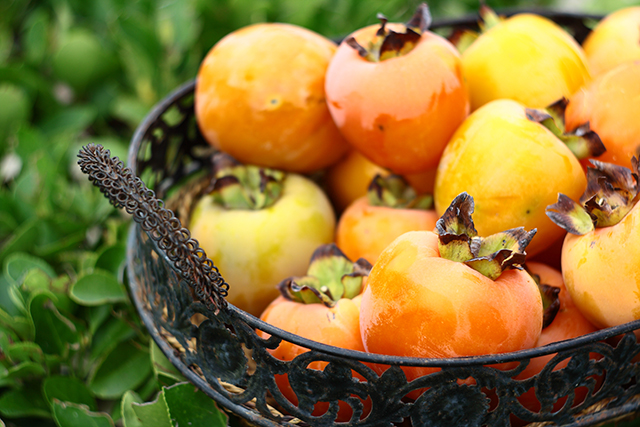The king of fruits: Exploring the wonders of durian
By zoeysky // 2025-02-11
Tweet
Share
Copy

- Durian is a tropical fruit native to Southeast Asia that is famous for its strong aroma, unique flavor and creamy texture, all of which evoke both admiration and aversion.
- Durian has been cultivated for over 400 years, with origins in the rainforests of Borneo and Sumatra.
- Durian is a nutrient-dense superfood, rich in vitamins (C, B6 and folate) and minerals (iron, magnesium and potassium).
- It also contains phytonutrients like anthocyanins, carotenoids, flavonoids, organosulfur compounds and polyphenols, which boast antioxidant, anti-inflammatory and disease-preventing properties.
- Durian is versatile and goes well in sweet and savory dishes. Popular recipes include durian curry and durian ice cream.
The durian fruit: A closer look
Durian is instantly recognizable by its large, oblong shape and thick, spiky rind, which can range in color from green to brown. The fruit typically weighs between two to seven pounds, with some varieties growing even larger. Inside the tough exterior lies a creamy, custard-like flesh divided into segments, each encasing a large seed. The color of the flesh varies from pale yellow to deep orange, depending on the variety. The taste of durian is as complex as its aroma. Described as a blend of sweet, savory and creamy flavors, it has been likened to a unique combination of almonds, caramel and cheese. However, its strong, sulfurous odor — often compared to rotting onions or gym socks — has led to its ban in many public spaces, including hotels and public transportation in Southeast Asia. Despite its divisive reputation, durian enthusiasts enjoy its rich, indulgent flavor and consider it a delicacy.Historical and cultural significance
Durian is the edible fruit produced by several tree species within the genus Durio. Of the 30 recognized species in this genus, at least nine are known to bear edible fruit. Among these, Durio zibethinus, which is native to Borneo and Sumatra, is the sole species widely available in international markets. Durian has a long and storied history, with its origins tracing back to the rainforests of Borneo and Sumatra. Historical records suggest that durian has been cultivated for over 400 years, with early mentions in texts from the 15th century. Today, it is widely grown in tropical regions, particularly in Thailand, Malaysia, Indonesia and the Philippines, which are among the largest producers and exporters of the fruit. The name "durian" is derived from the Malay word duri, meaning "thorn," a nod to its spiky exterior. Over time, durian has become deeply embedded in the cultural fabric of Southeast Asia, featuring prominently in local cuisines, festivals and traditional medicine.Nutritional composition and phytonutrients
Durian is not only a culinary delight but also a nutrient-dense superfood. It is rich in vitamins such as vitamin C, vitamin B6 and folate, as well as minerals like iron, magnesium and potassium. Additionally, durian contains a variety of phytonutrients, including:- Anthocyanins – Antioxidants that help combat oxidative stress and inflammation
- Carotenoids – Precursors to vitamin A, which support eye health and immune function
- Flavonoids – Known for their anti-inflammatory and anti-cancer properties
- Organosulfur compounds – Responsible for durian's distinctive aroma and potential health benefits, including detoxification and immune support.
- Polyphenols – Compounds that help reduce the risk of chronic diseases such as heart disease and cancer
Health benefits and potential therapeutic uses
The unique combination of nutrients and phytonutrients in durian makes it a valuable addition to a health-conscious diet. Research suggests that durian may help prevent or alleviate several conditions:- Cardiovascular health – The high potassium content in durian helps regulate blood pressure, while its fiber and healthy fats support cholesterol management.
- Immune support – The vitamin C and antioxidants in durian help strengthen the immune system and protect against infections.
- Mood regulation – Durian contains tryptophan, an amino acid that the body converts into serotonin, which helps in improving mood and reducing anxiety. (Related: Study: Citrus fruits can help you maintain healthy cognitive function as you age.)
- Digestive health – Durian's fiber content promotes healthy digestion and may prevent constipation.
- Bone health – The fruit's calcium and magnesium content contribute to bone density and strength.
Culinary applications and recipe ideas
Durian's versatility in the kitchen makes it a favorite ingredient in both sweet and savory dishes. Here are some recipe ideas that showcase its unique flavor:- Durian curry – A savory dish that pairs durian with spices, coconut milk and vegetables for a unique flavor experience.
- Durian smoothie bowl – Blend durian flesh with banana, coconut milk and ice for a creamy, nutrient-packed breakfast.
- Durian sticky rice – A traditional Thai dessert featuring glutinous rice, coconut cream and durian.
- Durian cheesecake – A decadent twist on classic cheesecake, incorporating durian puree into the filling.
- Durian ice cream – A popular treat in Southeast Asia, combining durian's creamy texture with the coolness of ice cream.
More related stories:
Winter detox tips using superfoods and adaptogens. Mike Adams Sermon 42: God’s superfruit FIGS can fight warts, staph infections and cancer. Seasonal greens powders to help you maintain optimal winter nutrition. Sources include: Brighteon.AI NaturalNews.com Brighteon.comTweet
Share
Copy
Tagged Under:
superfoods nutrition natural medicine antioxidants nutrients natural health natural cures food science fruits organics grocery durian food cures food is medicine goodhealth goodfood health science
You Might Also Like
RFK Jr. takes helm at HHS, vows to tackle chronic disease with “unbiased science”
By Cassie B. // Share
Persimmon perks: Unveiling the impressive health benefits of this autumn fruit
By Zoey Sky // Share
Unveiling the supernatural: Rare “angel pattern” discovered in human brains
By Willow Tohi // Share
Here’s why you should choose only lab-verified cocoa products
By Zoey Sky // Share
The resurgence of thieves oil: Ancient remedy, modern wonder or internet folklore?
By Willow Tohi // Share
Papaya: Discover the remarkable health benefits of this tropical superfood
By Zoey Sky // Share
Recent News
Xi Jinping: Russia-Ukraine war can only be resolved by addressing its "root causes"
By ramontomeydw // Share











